
Previously:
v4.7. Here are a bunch of security things I m excited about in Linux v4.8:
SLUB freelist ASLR
Thomas Garnier continued his
freelist randomization work by adding
SLUB support.
x86_64 KASLR text base offset physical/virtual decoupling
On x86_64, to implement the KASLR text base offset, the physical memory location of the kernel was randomized, which resulted in the virtual address being offset as well. Due to how the kernel s -2GB addressing works (
gcc s
-mcmodel=kernel ), it wasn t possible to randomize the physical location beyond the 2GB limit, leaving any additional physical memory unused as a randomization target. In order to decouple the physical and virtual location of the kernel (to make physical address exposures less valuable to attackers), the physical location of the kernel needed to be randomized
separately from the virtual location. This required a lot of work for handling very large addresses spanning terabytes of address space. Yinghai Lu, Baoquan He, and I landed a
series of patches that ultimately did this (and in the process fixed some other bugs too). This expands the
physical offset entropy to roughly
$physical_memory_size_of_system / 2MB bits.
x86_64 KASLR memory base offset
Thomas Garnier rolled out KASLR to the kernel s various statically located memory ranges, randomizing their locations with
CONFIG_RANDOMIZE_MEMORY. One of the more notable things randomized is the physical memory mapping, which is a
known target for attacks. Also randomized is the vmalloc area, which makes attacks against targets vmalloced during boot (which tend to always end up in the same location on a given system) are now harder to locate. (The vmemmap region randomization accidentally missed the v4.8 window and will appear in v4.9.)
x86_64 KASLR with hibernation
Rafael Wysocki (with Thomas Garnier, Borislav Petkov, Yinghai Lu, Logan Gunthorpe, and myself) worked on a
number of fixes to hibernation code that, even without KASLR, were coincidentally exposed by the
earlier W^X fix. With that original problem fixed, then memory KASLR exposed more problems. I m very grateful everyone was able to help out fixing these, especially Rafael and Thomas. It s a hard place to debug. The bottom line, now, is that hibernation and KASLR are
no longer mutually exclusive.
gcc plugin infrastructure
Emese Revfy ported the PaX/Grsecurity
gcc plugin infrastructure to upstream. If you want to perform compiler-based magic on kernel builds, now it s much easier with
CONFIG_GCC_PLUGINS! The plugins live in
scripts/gcc-plugins/. Current plugins are a short example called Cyclic Complexity which just emits the complexity of functions as they re compiled, and Sanitizer Coverage which provides the same functionality as gcc s recent
-fsanitize-coverage=trace-pc but back through gcc 4.5. Another notable detail about this work is that it was the first Linux kernel security work funded by Linux Foundation s
Core Infrastructure Initiative. I m looking forward to more plugins!
If you re on Debian or Ubuntu, the required gcc plugin headers are available via the
gcc-$N-plugin-dev package (and similarly for all cross-compiler packages).
hardened usercopy
Along with work from Rik van Riel, Laura Abbott, Casey Schaufler, and many other folks doing testing on the
KSPP mailing list, I ported part of PAX_USERCOPY (the basic runtime bounds checking) to upstream as
CONFIG_HARDENED_USERCOPY. One of the interface boundaries between the kernel and user-space are the
copy_to_user()/
copy_from_user() family of functions. Frequently, the size of a copy is known at compile-time ( built-in constant ), so there s not much benefit in checking those sizes (hardened usercopy avoids these cases). In the case of dynamic sizes, hardened usercopy checks for 3 areas of memory: slab allocations, stack allocations, and kernel text. Direct kernel text copying is simply disallowed. Stack copying is allowed as long as it is entirely contained by the current stack memory range (and on x86, only if it does not include the saved stack frame and instruction pointers). For slab allocations (e.g. those allocated through
kmem_cache_alloc() and the
kmalloc()-family of functions), the copy size is compared against the size of the object being copied. For example, if
copy_from_user() is writing to a structure that was allocated as size 64, but the copy gets tricked into trying to write 65 bytes, hardened usercopy will catch it and kill the process.
For testing hardened usercopy,
lkdtm gained several new tests: USERCOPY_HEAP_SIZE_TO, USERCOPY_HEAP_SIZE_FROM, USERCOPY_STACK_FRAME_TO,
USERCOPY_STACK_FRAME_FROM, USERCOPY_STACK_BEYOND, and USERCOPY_KERNEL. Additionally, USERCOPY_HEAP_FLAG_TO and USERCOPY_HEAP_FLAG_FROM were added to test what will be coming next for hardened usercopy: flagging slab memory as safe for copy to/from user-space , effectively whitelisting certainly slab caches, as done by PAX_USERCOPY. This further reduces the scope of what s allowed to be copied to/from, since most kernel memory is not intended to ever be exposed to user-space. Adding this logic will require some reorganization of usercopy code to add some new APIs, as PAX_USERCOPY s approach to handling special-cases is to add bounce-copies (copy from slab to stack, then copy to userspace) as needed, which is unlikely to be acceptable upstream.
seccomp reordered after ptrace
By its original design, seccomp filtering happened before ptrace so that seccomp-based ptracers (i.e.
SECCOMP_RET_TRACE) could explicitly bypass seccomp filtering and force a desired syscall. Nothing actually used this feature, and as it turns out, it s not compatible with process launchers that install seccomp filters (e.g. systemd, lxc) since as long as the
ptrace and
fork syscalls are allowed (and
fork is needed for any sensible container environment), a process could spawn a tracer to help bypass a filter by injecting syscalls. After Andy Lutomirski convinced me that ordering ptrace first does not change the attack surface of a running process (unless
all syscalls are blacklisted, the entire ptrace attack surface will always be exposed), I
rearranged things. Now there is no (expected) way to bypass seccomp filters, and containers with seccomp filters can allow ptrace again.
That s it for v4.8! The merge window is open for v4.9
2016, Kees Cook. This work is licensed under a Creative Commons Attribution-ShareAlike 3.0 License.

 This is the second part of how I build a read-only root setup for my router. You might want to read
This is the second part of how I build a read-only root setup for my router. You might want to read 




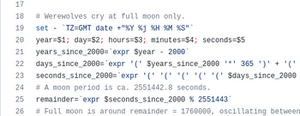






 Because
Because  Welcome to gambaru.de. Here is my monthly report that covers what I have been doing for Debian. If you re interested in Java, Games and LTS topics, this might be interesting for you.
DebConf 17 in Montreal
I traveled to
Welcome to gambaru.de. Here is my monthly report that covers what I have been doing for Debian. If you re interested in Java, Games and LTS topics, this might be interesting for you.
DebConf 17 in Montreal
I traveled to  Previously:
Previously: 
 I promised to write about this a long time, ooops... :-)
Another ARM port in Debian - yay!
arm64 is officially a release architecture for Jessie, aka Debian
version 8. That's taken a lot of manual porting and development effort
over the last couple of years, and it's also taken a lot of CPU time -
there are ~21,000 source packages in Debian Jessie! As is often the
case for a brand new architecture like arm64 (or AArch64, to use ARM's
own terminology), hardware can be really difficult to get hold of. In
time this will cease to be an issue as hardware becomes more
commoditised, but in Debian we really struggled to get hold of
equipment for a very long time during the early part of the port.
First bring-up in Debian Ports
To start with, we could use ARM's own AArch64 software models to
build the first few packages. This worked, but only very slowly. Then
Chen Baozi and the folks running
the
I promised to write about this a long time, ooops... :-)
Another ARM port in Debian - yay!
arm64 is officially a release architecture for Jessie, aka Debian
version 8. That's taken a lot of manual porting and development effort
over the last couple of years, and it's also taken a lot of CPU time -
there are ~21,000 source packages in Debian Jessie! As is often the
case for a brand new architecture like arm64 (or AArch64, to use ARM's
own terminology), hardware can be really difficult to get hold of. In
time this will cease to be an issue as hardware becomes more
commoditised, but in Debian we really struggled to get hold of
equipment for a very long time during the early part of the port.
First bring-up in Debian Ports
To start with, we could use ARM's own AArch64 software models to
build the first few packages. This worked, but only very slowly. Then
Chen Baozi and the folks running
the  Wow. 3G delta. I haven t booted this laptop for a while I think I m finally ready to make the move from gnome2 to gnome3. There are bits that still annoy me, but I think it s off to a good start. Upgrading perl from 5.10 to 5.14.
Wow. 3G delta. I haven t booted this laptop for a while I think I m finally ready to make the move from gnome2 to gnome3. There are bits that still annoy me, but I think it s off to a good start. Upgrading perl from 5.10 to 5.14.
 If you ever used
If you ever used  I am currently sitting in the train to Goslar, where the
I am currently sitting in the train to Goslar, where the 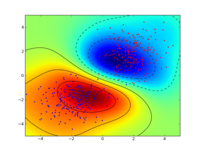
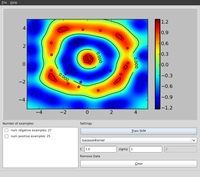
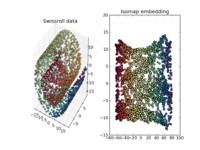
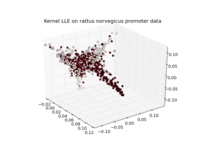
_small.png)
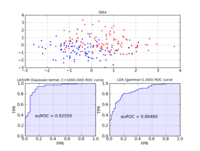
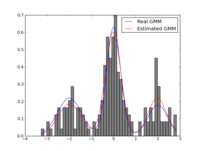
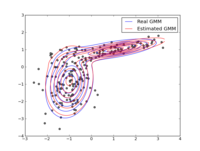
 Ever since I blogged about the
Ever since I blogged about the  No GNOME 3 for Debian 6.0
Don t hold your breath, it s highly unlikely that anyone of the Debian GNOME team will prepare backports of GNOME 3 for Debian 6.0 Squeeze. It s already difficult enough to do everything right in unstable with a solid upgrade path from the current versions in Squeeze
But if you are brave enough to want to install GNOME 3 with Debian 6.0 on your machine then I would suggest that you re the kind of person who should run Debian testing instead (or even Debian unstable, it s
No GNOME 3 for Debian 6.0
Don t hold your breath, it s highly unlikely that anyone of the Debian GNOME team will prepare backports of GNOME 3 for Debian 6.0 Squeeze. It s already difficult enough to do everything right in unstable with a solid upgrade path from the current versions in Squeeze
But if you are brave enough to want to install GNOME 3 with Debian 6.0 on your machine then I would suggest that you re the kind of person who should run Debian testing instead (or even Debian unstable, it s  You should not install GNOME 3 from experimental if you re not ready to deal with some problems and glitches. Beware: once you upgraded to GNOME 3 it will be next to impossible to go back to GNOME 2.32 (you can try it, but it s not officially supported by Debian).
You should not install GNOME 3 from experimental if you re not ready to deal with some problems and glitches. Beware: once you upgraded to GNOME 3 it will be next to impossible to go back to GNOME 2.32 (you can try it, but it s not officially supported by Debian). Frequently Asked Questions and Common Problems
Why do links always open in epiphany instead of iceweasel? You need to upgrade to the latest version on libglib2.0-0, gvfs and gnome-control-center in experimental. Then you can customize the default application used in the control center (under System Information > Default applications ).
You might need to switch to iceweasel 4.0 in experimental to have iceweasel appear in the list of browsers. Or you can edit
Frequently Asked Questions and Common Problems
Why do links always open in epiphany instead of iceweasel? You need to upgrade to the latest version on libglib2.0-0, gvfs and gnome-control-center in experimental. Then you can customize the default application used in the control center (under System Information > Default applications ).
You might need to switch to iceweasel 4.0 in experimental to have iceweasel appear in the list of browsers. Or you can edit  I asked
I asked 